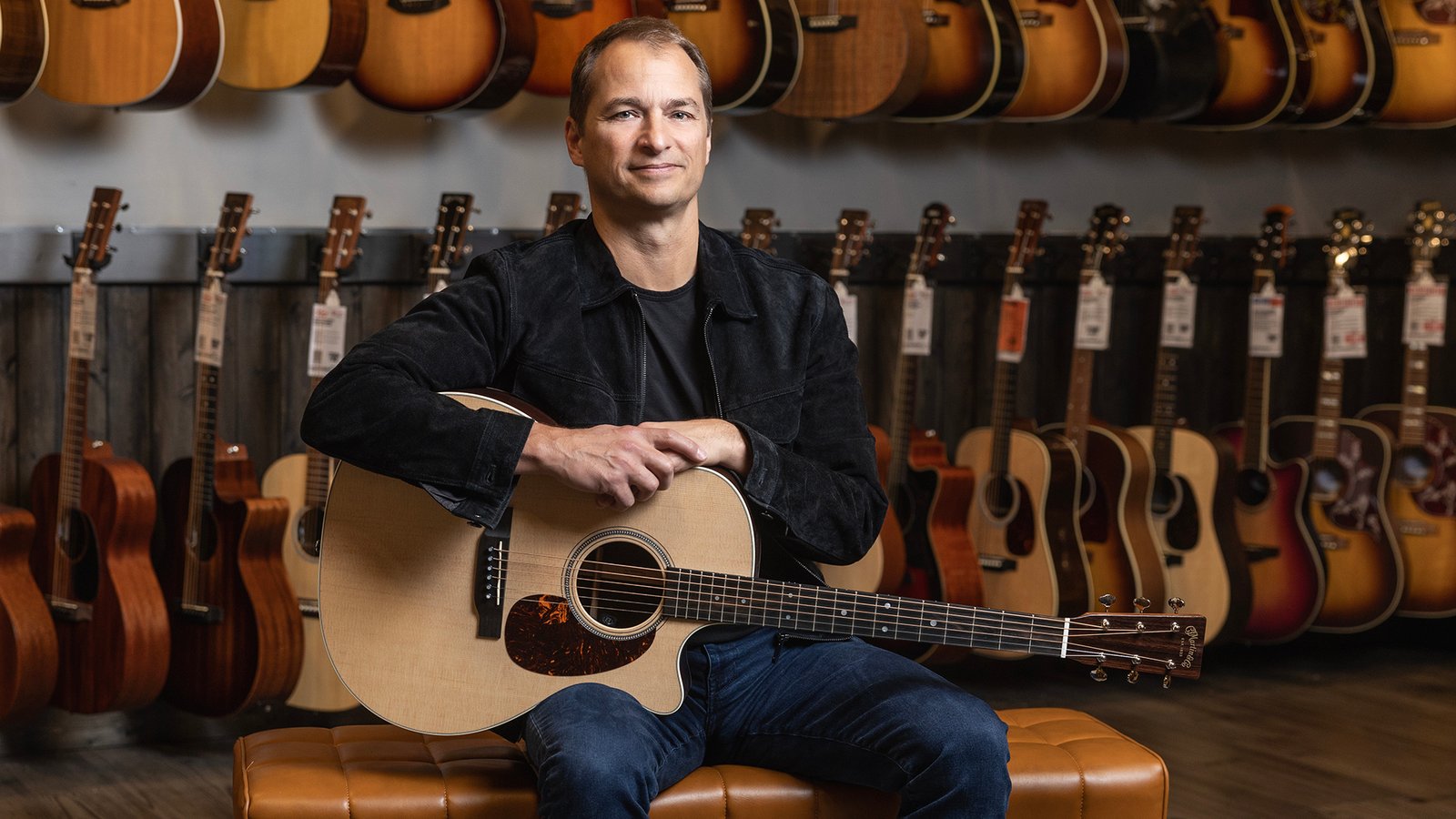
These are uncertain times for guitar stores. Now more than ever, the looming spectre of online retailers – as well as the economic climate surrounding the guitar industry in general – is being felt, and as a result physical stores are struggling to survive.
Over the past few months alone, the sight of store closures has become more and more commonplace. It’s a regrettable symptom of the fact that fewer players are frequenting their local brick-and-mortar guitar store, and said stores are failing to adapt in the face of unprecedented digital competition and the growing preference for online shopping.
The iconic Sam Ash closed all of its stores last year, despite axing some of its branches in a desperate bid to stay afloat. GAK in the UK shut its doors, seemingly overnight, despite having a reputation as one of the biggest instrument retailers in the country, as did PMT.
But for Guitar Center – a name synonymous with physical retail – the widening disconnect between players and physical stores and the continuing online shift are just part of the struggle.
Guitar Center isn’t just at war with, say, Amazon – it’s also recovering from something of an identity crisis. Years in limbo have led to a perception of slipping standards, limited stock and poor customer service. Whether you feel this is a fair perception or not, its appeal to players has undoubtedly waned. Now the institution is attempting to right its course and reestablish its prestige.
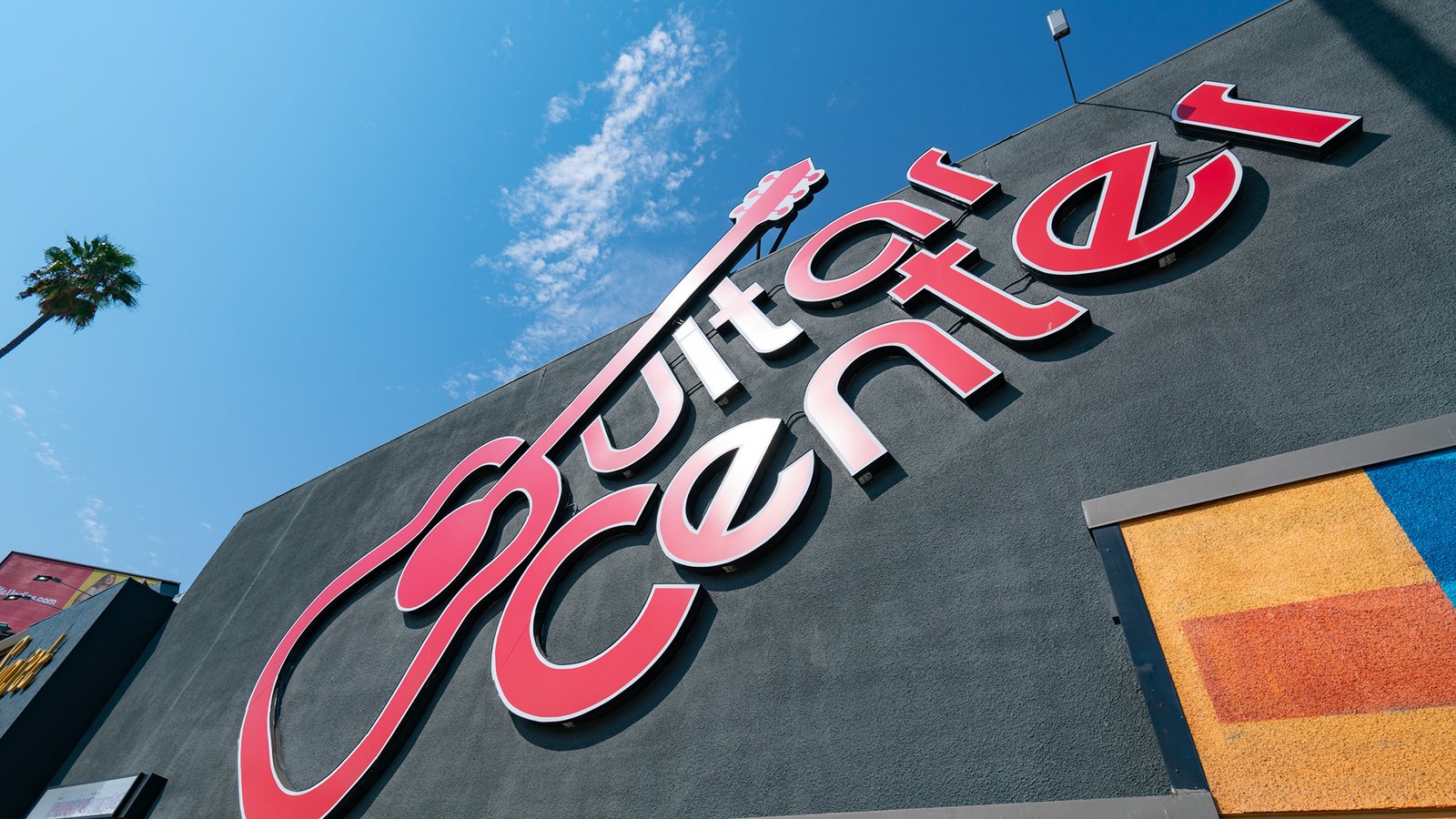
The man responsible for doing just that is Gabe Dalporto. Appointed in 2023, he is a digital mogul, avid guitar collector and lifelong player who has found a position that merges his two passions: playing guitar and making businesses grow.
Dalporto is, in his own words, the perfect embodiment of the typical Guitar Center customer, and he has been entrusted with the power to bring about a change that, if it succeeds, will change players’ perception of the brand – and help it survive in a new era of the industry.
It hasn’t been an easy start, though. Dalporto may have ruffled a few feathers – Tom Morello’s included – with his ‘serious musician’ comments, but there’s method behind his carefully thought-out strategy, which involves overhauling inventory, investing in workforce training and repurposing the space as a ‘Disneyland-type destination’ to get players through the doors.
Ultimately, players have been frustrated but they want Guitar Center to survive. That strength of feeling was made clear earlier this year when Guitar World asked readers to share their thoughts on what the stores can do to get back on their feet – and it quickly became one of our most-commented pieces.
Clearly, it was time to sit down with Dalporto himself for a wide-ranging discussion that covered those concerns – your concerns – and, most importantly, what he is doing about them.
We ended up going deep into the running of Guitar Center – from how Dalporto plans to adapt to survive, what innovations we might expect and, at the top of the list, how he is earning back the trust of players.
How Guitar Center Will Win Back Guitar Players’ Trust | CEO Gabe Dalporto Interview – YouTube
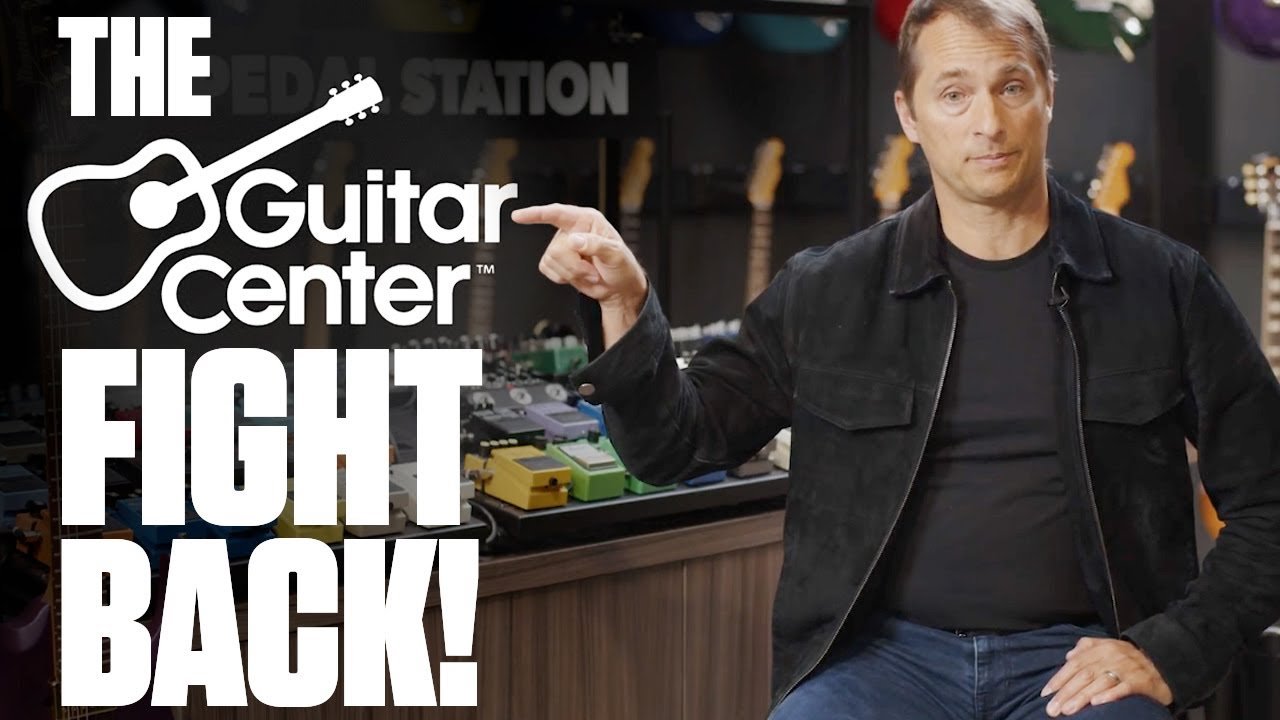
I hear you’re a guitar player, and you’ve been playing for a long time. What is your background as a guitarist, and how did you end up at Guitar Center?
“I grew up in the deep mountains of West Virginia and my father was a musician. He put together a makeshift recording studio in this 1860s farmhouse, and was really connected with the music scene. We would always have people coming from all over the state, playing till three o’clock in the morning. I decided I liked that better than my room, and so I started just sleeping out in the recording studio.
“I was surrounded by music all of my childhood. My father taught me to play. I was about 10 years old or so, and at some point in my early teens, he gave me one of his guitars – a 1964 Fender Stratocaster, which is probably my first true love.
“I’ve played guitar my whole life, but always just as a hobby. At some point, I put a band together, and that band’s been together for 13 years now. We’ve got four gigs coming up in the next two weeks, so it’s a big piece of my life.
There’s literally no place I would rather be on the planet than working at Guitar Center. This is really my dream
“Professionally, I was working as a strategy consultant, as a marketer, then as a Chief Financial Officer, then as a CEO in digital companies – things like E*Trade, LendingTree and this online education company called Udacity. I had this personal passion around music, and I had this professional life, but they really were not intersecting at all.
“In 2018 I met the owners of Guitar Center and they asked me to join the board to represent digital [at the company]. They wanted me to manage what could be a digital transformation. At some point, they decided to make a change at CEO and I said, ‘Hey, I know I’m not the logical choice, I’m not a retail person, but I am a musician, and I totally get where this company needs to go.’ And they gave me the opportunity to do this.
“So this is the combination of my personal passion with my professional skills, and for the first time in my entire career, they’re coming together. There’s literally no place I would rather be on the planet than working at Guitar Center. This is really my dream.”
What’s the name of your band? What kind of music do you play?
“I was looking for a name for the band and my wife’s like, ‘Oh, honey, I know the name of your band. It’s the Mid Life Crisis.’ I’m like, ‘Yeah, perfect.’ So we’re called the Mid Life Crisis, you can look us up – MLC.band – and I’d say we probably play eight to 10 times a year, and mostly at bar gigs, charities, small festivals and stuff like that in mostly the Bay Area and down towards the central coast of California.”
Is the 1964 Strat still your main guitar? What are you playing at the moment?
“When my father passed away, I inherited his ’56 Les Paul, so those are my two irreplaceable guitars. When I gig, I often gig with a PRS. It’s got a lot of the qualities I like in those two guitars, but a lot less sentimental value.
“I think what I’ve learned over the years is, you wind up playing different music depending on the guitar you’re playing. Guitars almost feel like they want to be played a certain way, and so I’ve been building out my collection to encompass a lot of different styles.
“I just got a Martin D-48, which is amazing. I’ve also played Taylors throughout my life, and I got a couple of those. I picked up at Tele a little while ago, and that really makes me want to play more blues-y music. I got an ES-335 Custom, I spec’d the whole thing out, and it’s really gorgeous. Oh, and if I want to play shredder music, I’ve got an EVH, and that just wants you to do the finger tapping and everything.”
What advantages does your background as a player give you as Guitar Center CEO?
“When I think of some of the challenges we’ve had at Guitar Center, we forgot how to serve our core customer. I think I am a representation of our core customer. And our core customer – we call them the ‘serious musician’, you can call them whatever you want – is someone where music is a big part of their life.
“I think really understanding what it takes to delight that customer is what was missing, because you can get caught up in the P&Ls [profit and losses] and the economics and everything, and cut a few dollars here and there, but every time you do that, you take something away from your customer.
“A lot of our strategy is built on thinking about that core customer and saying, ‘What is it going to take to delight them?’ And then, ‘How do we build a company around delighting that customer?’ So I think, sure, I’ve got digital skills, I’ve got business skills, but really what I bring to the company is an understanding of the customer and how to serve them.”
You say Guitar Center had forgotten who their core customer was. How and why do you think the store lost sight of that?
“If I’m totally honest, we had a series of leaders who were not musicians. They were very talented business people, but they weren’t musicians. It was hard for them to really appreciate the customer, and the way that manifested itself was simple things that added up to a lot.
“One of the things when you talk to a musician and you say, ‘Why are you going into a Guitar Center when you can buy anything online right now?’ They’ll usually say one of three things.
“The first is, ‘I just need to feel it and hear it.’ I learned over the years is that you can take two identical guitars, pick them up and they weigh a little different, the grains a little different, they sound a little different, and you actually have a significant preference for one of them, right?
“You can read reviews online all day, and you pick that guitar up and you hate it, and you pick this other one up and you love it. It’s just something purely personal – that’s what they want.
“[But] what we had done is stripped down our inventory. We’d really cut out a lot of the premium and mid-tier product, and over-invested in the entry level. So when you went into our stores, we didn’t have all the product you wanted to experience.
“Part two was, you say, ‘I’ve got this complicated problem. I need to talk to someone who really knows their stuff.’ And to save some money, we had cut out most of our staff training. We used to have all kinds of training, all different products, and so over time, what we got was an associate that just wasn’t armed to answer all the customers’ questions.
It just wasn’t fun anymore. Really great product, Disneyland-type experiential environment, and amazing sales knowledge – that’s our winning formula
“So we have fired up and rebuilt this entire training organization. We’re getting training out into our stores. We’re getting vendors out into our stores to train them on their products. That’s a work in progress, but our scores for knowledge are up substantially over the last 12 months, and we expect that to continue.
“The third reason people want to go into the stores is – and these are their words – they say, ‘Sometimes I just want to go to Disneyland.’ And what they mean is, we’re Space Mountain for musicians. But what had we done? We had let our standards drop so the stores were disorganized and messy. We had locked up all the guitars so you couldn’t just grab something and play it.
“So we have unlocked all of our guitars, we built these amazing pedal stations that are now in all 300 of our stores, I can grab a Les Paul or a Strat or a PRS, I can plug in, try 50 different pedals, find my sound, plug into a bunch of different amps, and really just have a ball.
“That was missing. It just wasn’t fun anymore. So it’s: really great product, Disneyland-type experiential environment, and amazing sales knowledge. That’s our winning formula.”
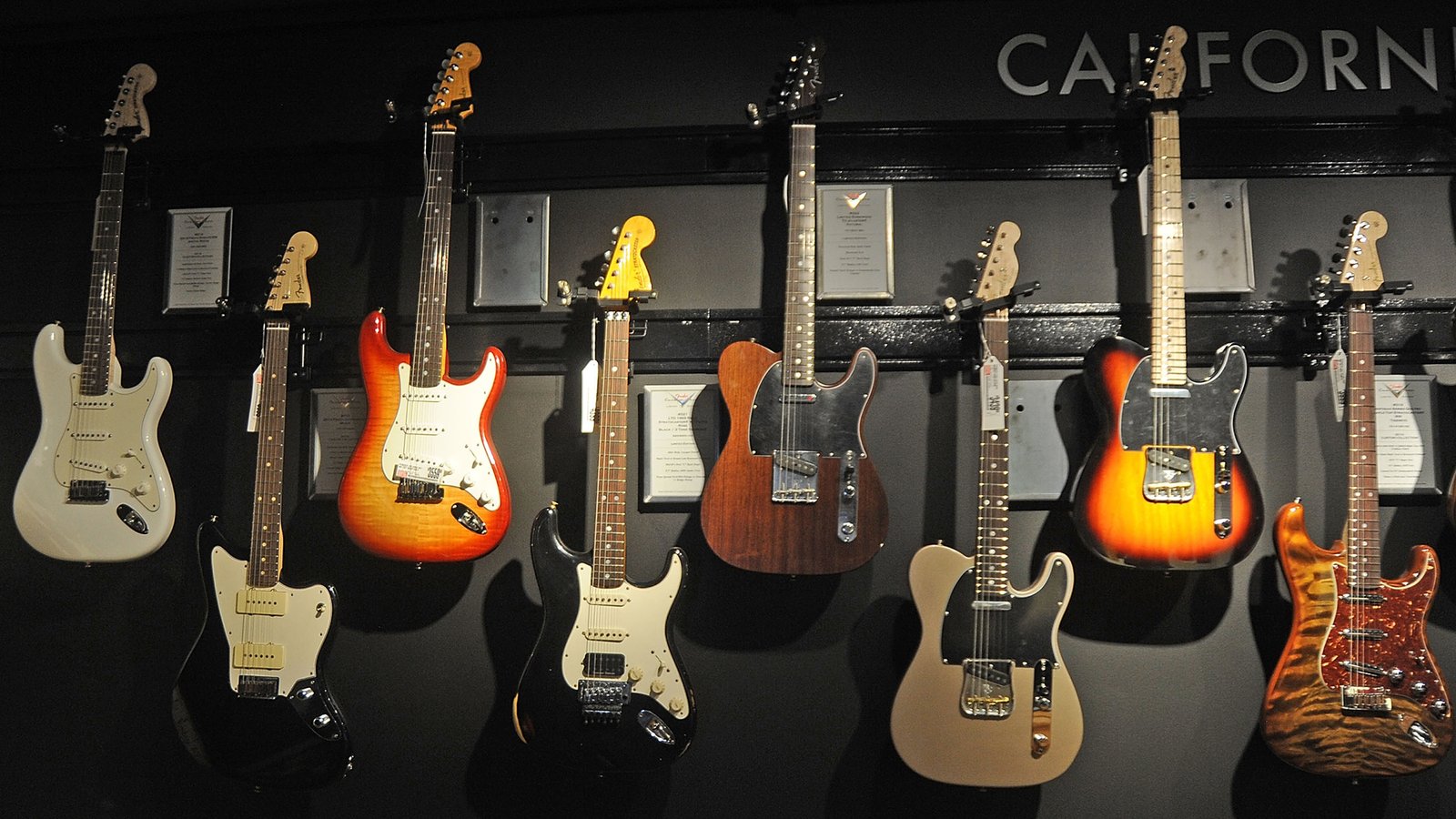
Inventory and stock has obviously been hugely important to your strategy. What has the response been like from players visiting the stores?
“It’s been incredible. There was a little blip in Covid where there’s a little bit of a boom, but following that period of time, we had nine consecutive quarters of negative growth. We have just delivered four consecutive quarters of growth, each quarter growing faster than the previous quarter. In the retail world, that’s crazy numbers, so it’s really resonating.
“But beyond just the revenue numbers, what’s more important to me is, number one, our traffic is up materially for the first time in over a decade. Online has been killing retail for a long time, and it’s just been a decades-long slide of traffic, and now traffic is actually up. And the amount of time that people are spending in the stores is up 20 percent. That means they’re having fun.”
You’re not just trying to reshape what Guitar Center actually is, you’re also in a retail environment that is now competing with Amazon, direct-from-factory, and other online retailers. What are the biggest challenges that such competition poses, and what other steps are you taking to make sure that you’re not losing out to them?
I’d rather not fight Amazon’s war. I’d rather fight our war. The way we can compete with that is through quality
“The primary step we’re taking is, we’ve invested significantly in every aspect of our digital team. That’s everything from our core infrastructure; how we serve our website; all our customer data platforms; how we communicate and market to our existing customers; to our talent and our team. We somehow let others grow a lot faster in the digital world than we did – and we absolutely plan to take our fair share back.
“I also think about Amazon, and I think Amazon is going to make it really hard for anybody to win the commodity parts of the space – the low-end, super-cheap, lower-quality product. I think that’s where they’re going to be dominant, and I’d rather not fight their war. I’d rather fight our war.
“So the way we can compete with that is through quality. We’re going to serve the parts of the market where quality really matters. That’s really going to be our jam, and I think we can actually win there.”
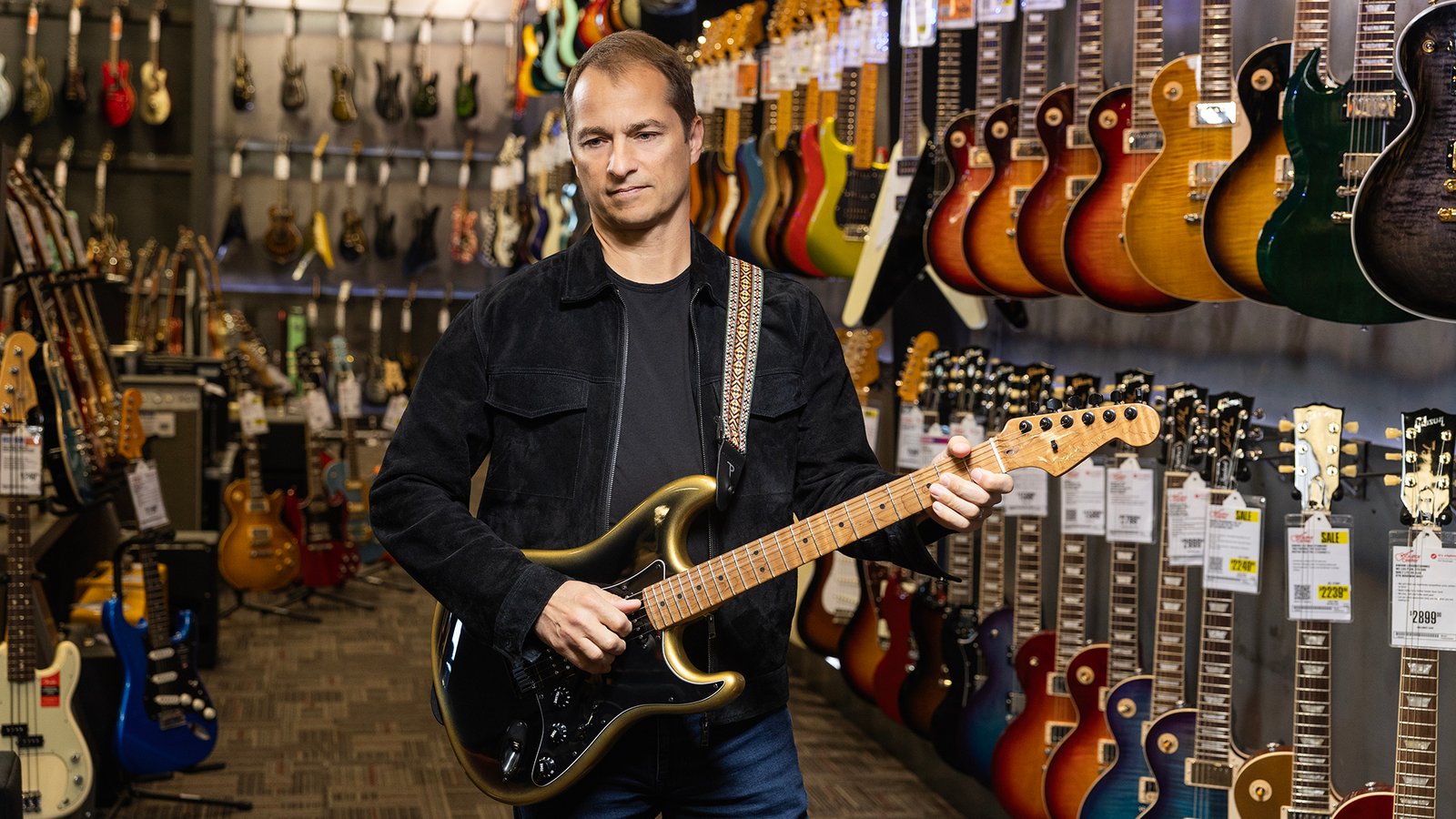
Our recent coverage of Guitar Center has received a sizeable response. Can you explain a bit more about how you’re improving your workforce? That was a key theme that came up in reader comments.
“I break it into the physical stores, and then the people side of it. I am really passionate and I communicate this all the time to our team. First of all, I’m out in the stores all the time. I like being out in the stores, because the truth is, you can sit in an office and not know what’s going on, but when you get out to the stores, you know exactly what’s going on.
“The second thing is, I never announce my trips. I’ll just show up in Connecticut one day in a store and you see what you see. It’s not like they had a week to prepare, but with our associates, I think of them as our secret weapon. If they do an amazing job and they blow a customer away, we have a customer for life. If they give someone attitude, you’re going to see exactly what you see online: a lot of people, grumpy and complaining.
“The thing I communicate to the sales team all the time is: number one, when someone walks through that door, welcome them. Number two, get out from behind the cash register, get out onto the floor and help someone find the instrument of their dreams. Be friendly.
We’re going to build loyalty. If we don’t do that, we’re going to have a very transactional relationship with people – and that’s not how you win the physical stores.
“And we’re tracking all this. It’s pretty simple, but it’s setting the expectation that your job is to establish a connection with a customer, be friendly, and help them along their journey. If we do that, we’re going to build relationships. We’re going to build loyalty. And if we don’t do that, we’re just going to have a very transactional relationship with people, and that’s not how you win the physical stores.
“I was visiting one of our stores in Connecticut, and the second I walked through the doors, I’m like, ‘This is not very clean.’ I went into the bathroom, and I’m like, ‘Oh, this is terrible.’ So I went to the Operations Manager, and I said, ‘Give me a mop and some cleaning supplies and I’m going to clean this.’ I scrubbed that bathroom and I made it spotless, and I had someone videotape me, and then I sent it out to the entire system.
“A little bit of it is setting that expectation and holding people accountable, and they will eventually get there. Our scores for cleanliness right now are up 10 percentage points or something, which is crazy. We are far from perfect, but we’re setting the expectations. Our associates are responding. They totally get it. They’re passionate about it. We’re making a ton of progress, and we’re going to get there.”
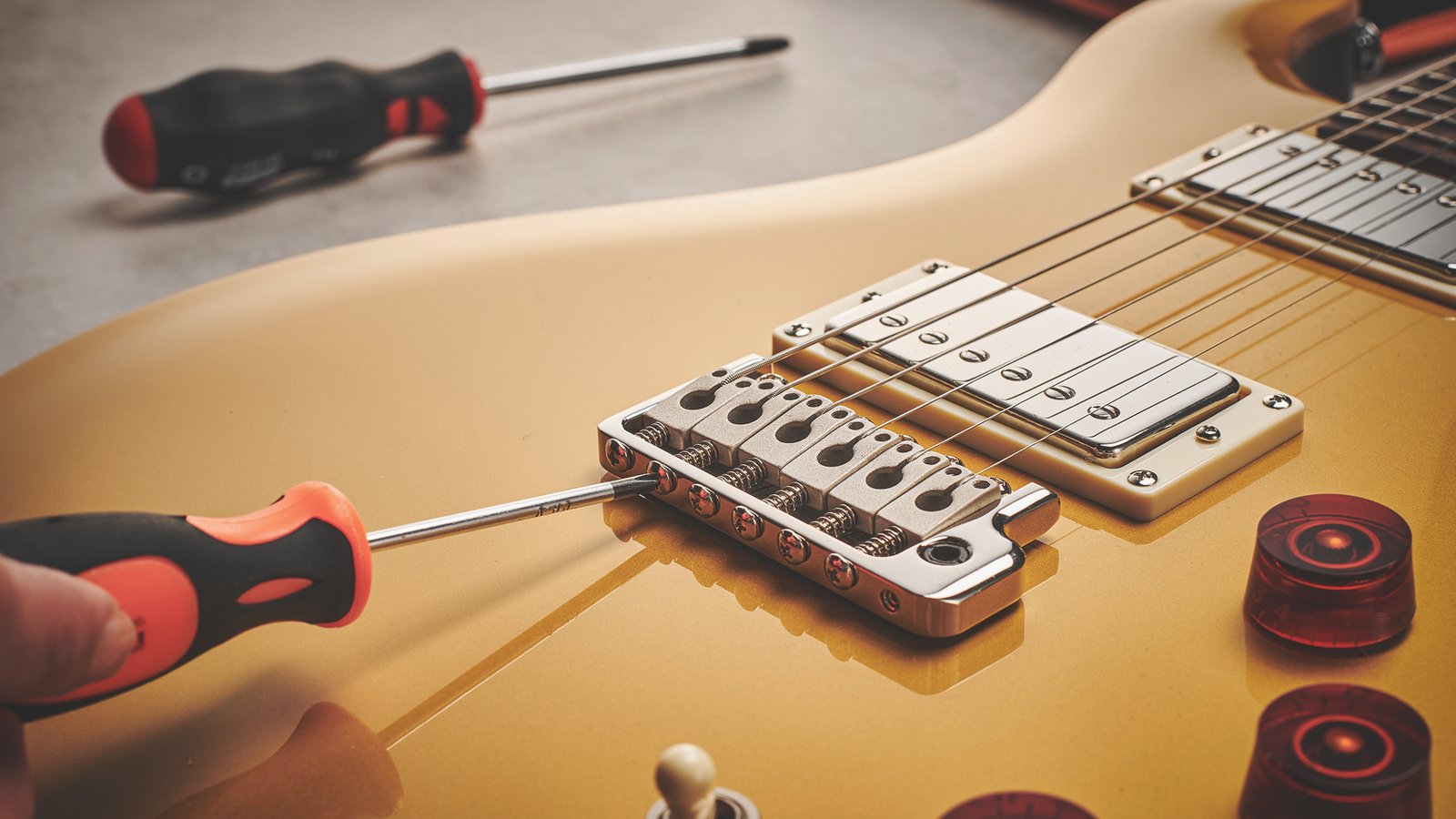
You mentioned the knowledge base of your associates. A lot of readers have been saying they want Guitar Center to be a place they can go to for luthier work and setups. Is that a focus?
“Absolutely. We have a repairs business at pretty much all of our Guitar Centers, and so that’s something we think is really important to our customers. We’re attacking that on two fronts.
“The first front is we’re driving a lot of training into our stores, and that’s increasing the knowledge level. We’re also investing in the careers of our associates, and so that results in less churn, and the longer you spend in the store, the more you know. We’re investing in our associates, we’re keeping them longer and we’re improving their knowledge base.”
We’re driving a lot of training into our stores, and that’s increasing the knowledge level. We’re also investing in the careers of our associates
You’re doing this restructure in a time where a lot of brands are also entering the retail space. There’s the Gibson Garage in Nashville and London, Fender Japan, Roland and Yamaha. What are your thoughts on those?
“This is a competitive market. It always has been. We welcome it. I think if we give an amazing experience, we win. I also would point them to Nike, and Nike tried to go direct and tried to pull back from retailers, and Nike got crushed. It’s important, if you are a brand, to have those relationships with your vendors, but bring the competition on. I just think we have a much larger, more integrated experience. You can experience all the products, not just one.”

Recently, you’ve been putting out a lot of exclusive Taylors, Martins, Gibsons and Fenders. Are you prioritizing those more now? Is that a conscious effort from your part to get more premium collaborations out there?
“Absolutely. We just have one that’s going on right now with these Epiphone Widows and they are the hottest thing ever, and they are only at Guitar Center. Hats off to our team and the team over at Gibson for coming up with something really unique. That’s absolutely part of our strategy: only at Guitar Center.”
For the rest of 2025, are there any other priorities that you’re focusing on? What would you like to see the stores improve on?
“One of our priorities is lessons. I talk a lot about ‘the serious musician’ and that’s our opportunity to create the next generation of serious musicians.
“One of the biggest challenges we have as an industry is, if someone picks up a guitar for the first time, for every 10 people who start playing guitar, a year later, one person is playing, and nine are not. What can we do to change that ratio? And that’s our lessons effort. It’s like, how do we connect with people early in their music career and really get them deeply embedded so they’re going to be in it for the long term.
“The other thing is AI and right now we’ve got a variety of AI initiatives. When you walk into a store, how can you deliver an experience that you otherwise just never could have historically, or on the website? We’re not ready to share exactly what that’s looking like, but we have some prototypes going that are pretty cool. [Since this interview was conducted, Guitar Center has launched Rig Advisor, the guitar world’s first-ever AI shopping assistant.]”
Going back to what readers would like to see: Is there any chance of having soundproof practice booths installed in stores?
“We have some stores that we could do that. The biggest problem we have is space. The stores are pretty packed and it’s hard enough to get enough room for lessons rooms, let alone a practice area, but some of the bigger stores do have some rooms and we do talk about whether we can make those available as practice rooms.
“So stay tuned on that one but I personally feel that pain. It’s tough to find practice space, so I hear you – let us see for some of the bigger stores what we can do there.”
Epiphone Les Paul Custom Widow Guitars | Demo and Overview with Nick Hames – YouTube

I’m interested if there are any other ways in which online retailers have forced you to adapt your strategy, and if there are any other challenges that you’re particularly focused on overcoming.
“I think the thing that we can uniquely do is be human, and the more we get away from being transactional, the more we get into establishing authentic relationships with the customer. We’re not just a gas station where you go and fill up your tank – we’re someone you’re actually getting to know and respect.
“If I fast-forward and if we do our jobs well, I think of Guitar Centers as that community gathering place, right where musicians go to meet other musicians, or to talk to knowledgeable people, or just hang out with other musicians.
“I would love for that to be where we go. I think we do that through step one, which is just delivering great service, but step two is actually getting to know your customer. Get to know them by name when they walk through the door, greet them by name and make them feel welcome in the stores.
“And there’s some things we can do to make the stores more comfortable to hang out in, but when I think about the ways to win against digital, it’s relationship-based, and it’s doing the things we can only do.”
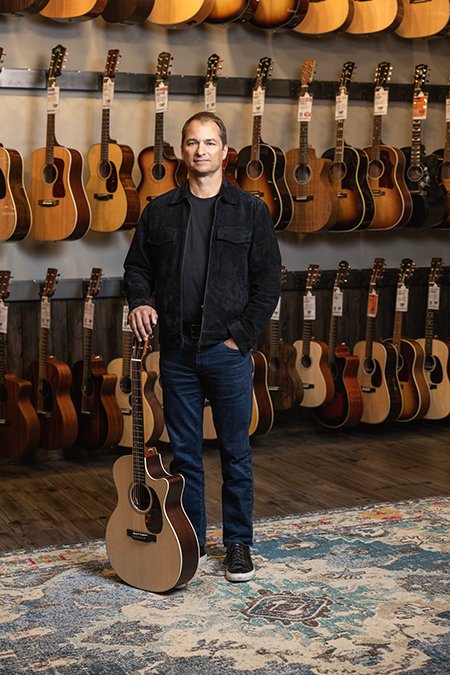
Tariffs are a hot topic in the guitar world right now. From your perspective, what do they mean for the wider industry?
“I really feel for our customers. Musicians don’t have a lot of extra money sitting around, and the last thing I want in this world is to have them pay higher prices.
“Tariffs, as you know, are a tax on us. Businesses like Guitar Center… that’s a real increase in our costs. Retailers in general – not just Guitar Center – are thin margin businesses. They operate with 5%, 10% profit margins. Some of these tariffs are 145%. We can’t absorb that. The math just isn’t there.
“We’re working really, really, really hard right now with a lot of urgency to figure out how can we mitigate the impact of tariffs on our customers, knowing that we can’t fully do that and so it is extremely likely, all retailers – including music industry – are going to start seeing price increases.
“So the things that we’re doing right now are, for the product that we manufacture ourselves, we are aggressively moving that to lower tariff areas: United States, North America, other Asian countries. That takes six months to 24 months. You can’t just move a factory overnight. We’re working with our vendors to see what they can do to do the same to mitigate cost increases.
“We’re also looking at every single product we have – some of them we’re just not going to carry anymore. There’s no way our customers will be able to afford them with new tariffs. We’re doing our best to then look at other brands, other locations, to replace that with as close an approximation as we can.
“The other thing we’re doing is leaning in heavily to used and vintage. And that used and vintage is a great, rapidly growing business for us. We’ve got an incredible assortment already, and so we encourage people to come check it out.
“I think our biggest challenge is getting the word out that we buy used product. We have these trade in, trade up events where, if you come and trade in, then we will give you a discount on your next purchase. It’s a great way to encourage people to bring their product in and then actually take the step to get the product of their dreams. So we’re working really hard to get the word out there.”
“We are doing everything we can to mitigate the impact on our customers. There’s only so much we can do.”
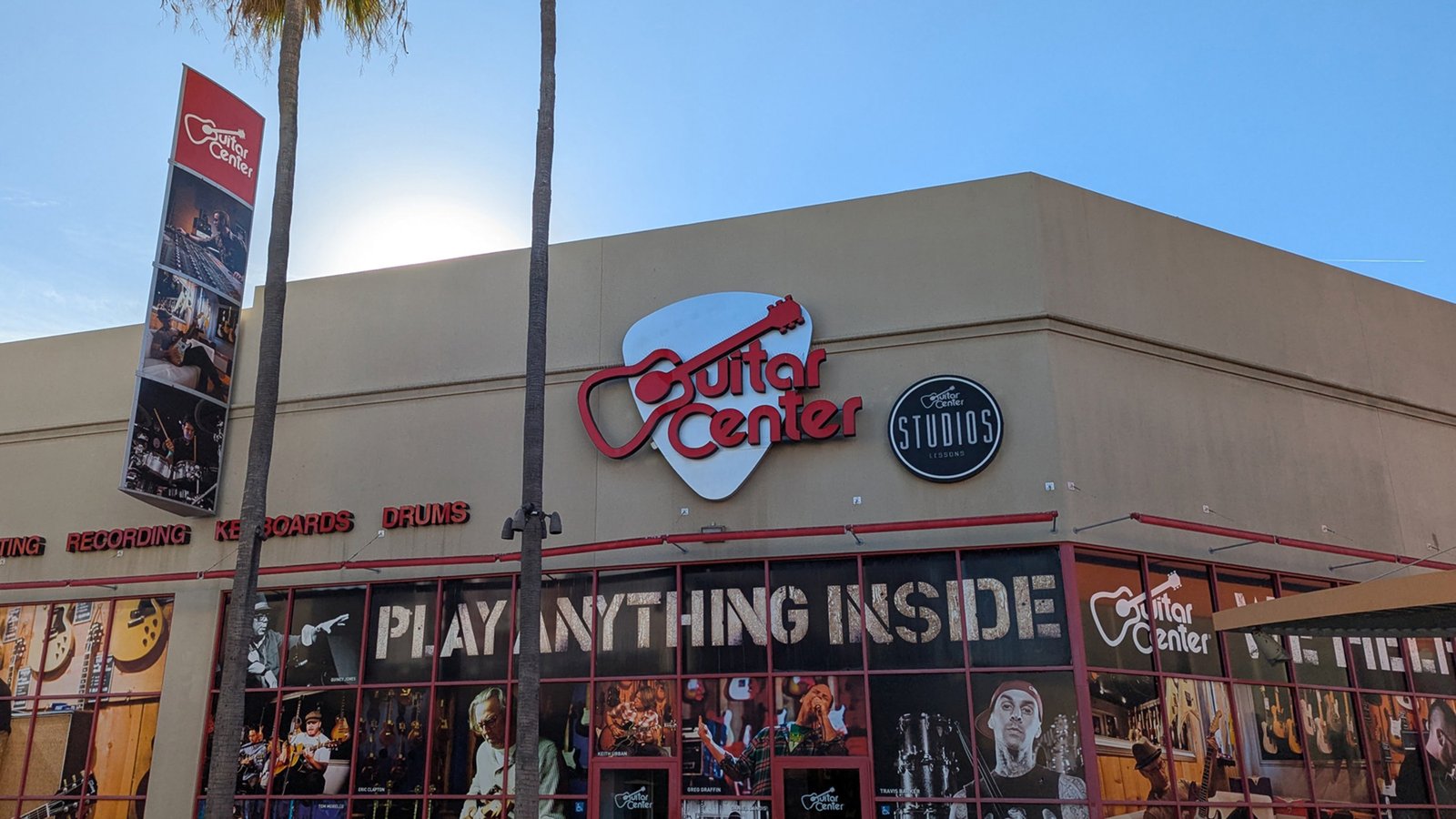
What do you want your Guitar Center legacy to be?
“I want us to have re-established trust with musicians. I want a musician, when they need help, to come to Guitar Center, and I want them to have such a great experience that they tell their other musician friends about it. That’s the simplest way I can say it.”
If you were to address readers who have been critical of Guitar Center, or who aren’t aware of the change in direction, what would you say to them?
“I would say, very simply, the reason we’re doing what we’re doing is because we listen to you specifically. We went out to every online forum and read all the complaints. I went out and talked to tons and tons of customers, and I asked three questions. I said, ‘What are we great at?’ Let’s keep doing that. ‘What do we suck at?’ Let’s stop doing that. ‘What should we do differently?’
Every time we get feedback, we act on it. We’re doing this for you because you asked for it
“We took all that together, and that’s what we’re doing. We simply listen to you. We’re far from perfect, but we’re moving very quickly to get a lot better. And if you haven’t been into a Guitar Center lately, I’d say, go into a Guitar Center and if you’re still not happy, reach out to us and let us know.
“Every time we get feedback, we act on it. Every day, I get an email from someone, and I send it out into the field and we fix it. It’s this constant process of getting a little bit better every day, but it’s all based on those conversations I had with you, and we’re doing this for you because you asked for it.”
- Visit Guitar Center for the latest developments.


